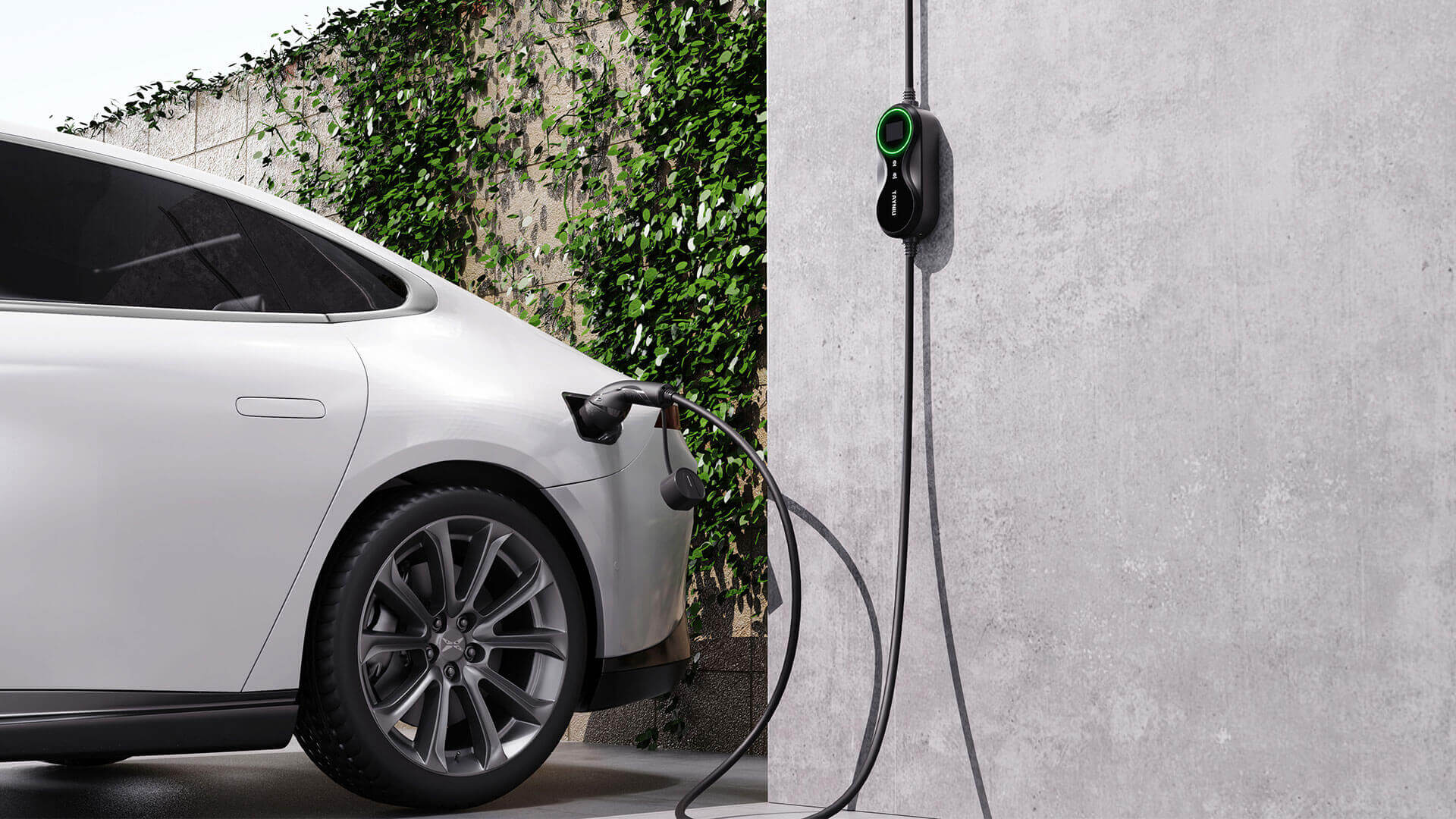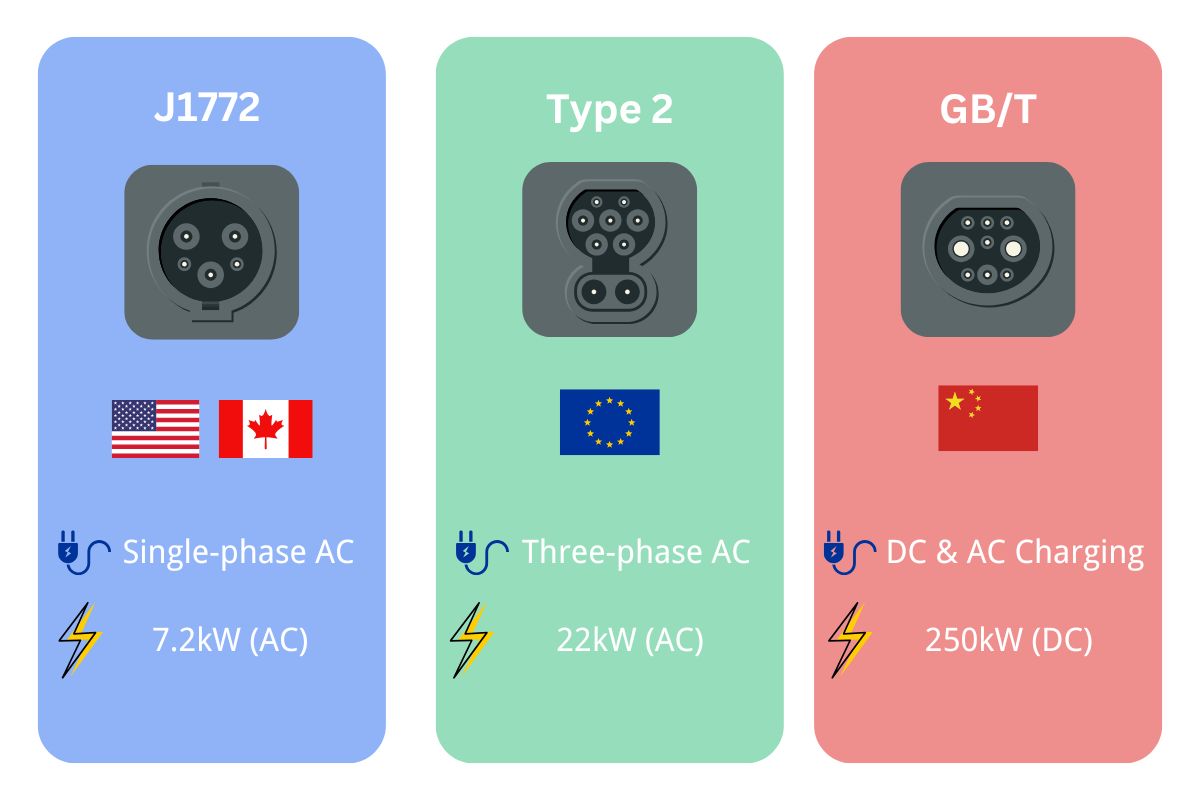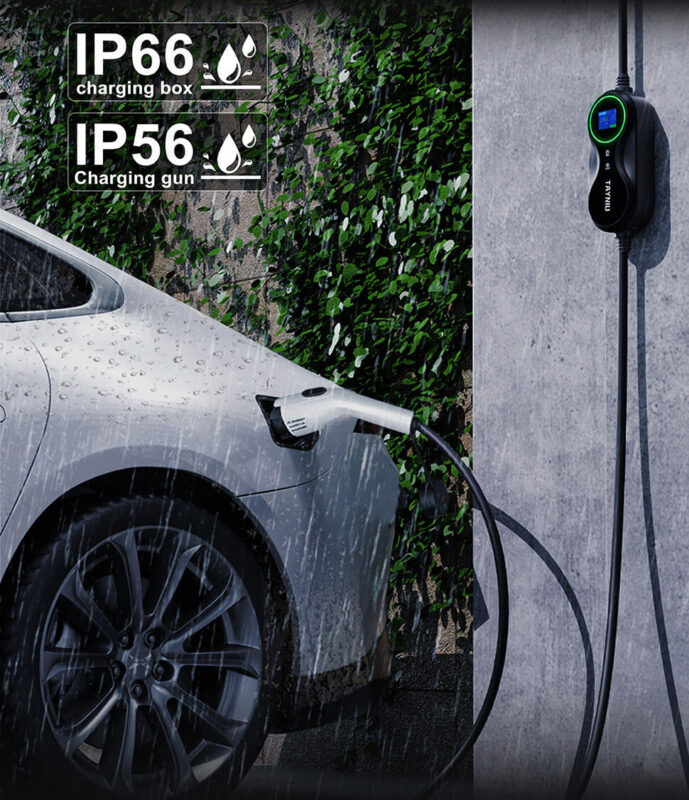Top Portable EV Charger Uses & Safety Tips
In today’s fast-paced world, owning an electric vehicle (EV) offers convenience, sustainability, and cost savings. According to recent reports, global EV adoption has grown significantly, with global EV sales rising from 3 million in 2020 to over 15 million in 2024—a fivefold increase. This surge highlights the growing need for reliable charging solutions, making portable EV chargers an essential investment for modern drivers. However, one of the biggest challenges for EV owners is ensuring access to reliable charging, especially when on the move. This is where a portable EV charger becomes an essential tool. Whether you need to charge at home, on a road trip, or in an emergency, a portable EV charger provides flexibility and peace of mind.
But how do you make the most of your charger while ensuring safety? This guide covers the top use cases of a portable EV charger and crucial safety tips to keep your EV and yourself protected.
1. Key Uses of a Portable EV Charger
1.1 Home Charging Convenience
For many EV owners, installing a fixed home charging station may not be an option due to rental agreements or budget constraints. A portable EV charger solves this issue by allowing you to charge directly from a standard household outlet (Level 1, 110V) or a higher-power socket (Level 2, 240V). This means you can charge at home without needing an expensive charging station.

1.2 Road Trips & Travel
One of the most frustrating experiences for EV drivers is arriving at a public charging station only to find it occupied or out of service. A J.D. Power study found that about 20% of public charging attempts outside the Tesla network fail, and ChargerHelp reported that around 26% of U.S. charging stations show incorrect availability. These challenges highlight the importance of having a reliable backup charging solution, such as a portable EV charger. Having a portable EV charger allows you to charge from alternative power sources, such as hotel parking lots, Airbnb accommodations, or even campgrounds. For those who travel frequently, having a reliable portable EV charger like the Tayniu Infinity Series ensures that you always have access to power, no matter where you are. This ensures you never run out of battery when traveling long distances.
1.3 Emergency Backup Solution
A portable EV charger can be a lifesaver in unexpected situations, such as being stranded on a road trip. Many EV owners have found that having a Tayniu Portable EV Charger provides a reliable backup solution in unexpected situations, such as running low on battery while traveling. If you ever miscalculate your remaining range and find yourself with low battery power, having a charger in your trunk means you can power up at the nearest available outlet. This is especially useful in rural areas with limited charging infrastructure.
1.4 Workplace & Temporary Charging
Many workplaces now offer EV charging, but not all companies have dedicated stations. With a portable EV charger, you can plug into a standard outlet while at work. This is also beneficial for those who frequently switch workplaces or live in rental properties where installing a permanent charger isn’t feasible.
2. Essential Safety Tips for Using a Portable EV Charger
2.1 Choose the Right Charger
Before purchasing a portable EV charger, ensure it is compatible with your vehicle’s charging port. Common standards include:
- J1772 (North America)
- Type 2 (Europe)
- GB/T (China)
Additionally, check the voltage and amperage rating of the charger to match your home’s electrical capacity.
Charging Standards Comparison

| Charging Standard | Region | Connector Type | Suitable for |
|---|---|---|---|
| J1772 | North America | Type 1 | Most EVs in the US & Canada |
| Type 2 | Europe | Type 2 | European EVs and plug-in hybrids |
| GB/T | China | GB/T | EVs in China |
This table provides a quick reference to help you choose the right charger for your vehicle.
2.2 Use Certified & Reliable Equipment
Safety should always be a top priority. Only use TUV, UL, or CE-certified portable EV chargers to prevent overheating, short circuits, or electrical fires. A great example is the Tayniu Portable EV Charger, which meets industry safety standards and offers reliable performance for both home and travel use. Cheap, uncertified chargers may pose significant safety risks and fail under prolonged use.
2.3 Proper Setup & Connection
- Always plug your portable EV charger into a properly grounded and dedicated outlet.
- Avoid using extension cords, as they can overheat.
- Inspect the charging cable and connectors before each use.
2.4 Avoid Extreme Weather Conditions
- If you frequently charge outdoors, invest in a charger with an IP65 or IP66 rating, which offers water and dust resistance.
- Avoid charging in heavy rain, snow, or extreme heat unless the charger is specifically designed for such conditions.

2.5 Monitor Charging & Avoid Overloading
- Do not leave your charger plugged in for extended periods unattended.
- Use chargers with built-in safety features like overcurrent, overvoltage, and overheating protection to prevent damage to your vehicle’s battery.
2.6 Store & Transport Properly
- After each use, neatly coil the charging cable to prevent wear and tear.
- Store the charger in a dry, well-ventilated space inside your vehicle to protect it from extreme temperatures.
3. Common Questions & Troubleshooting
3.1 Frequently Asked Questions
Q1: Can I use a portable EV charger in any weather conditions?
A: Yes, but ensure your charger has a high IP rating (IP65/IP66).
Q2: How fast can a portable EV charger charge my car?
A: Charging speed depends on voltage levels—110V is slower, while 240V charges faster.
Q3: Is it safe to leave a portable EV charger plugged in overnight?
A: It is recommended to use chargers with auto shut-off features.
3.2 Troubleshooting Common Issues
Charger Not Working?
- Check if the power source is functional by plugging in a small household device.
- Ensure the circuit breaker hasn’t tripped.
- Inspect the charger’s connectors and cable for any visible damage.
Slow Charging?
- Verify that you are using the correct power level (110V vs. 240V).
- Some EVs have charging speed limits when using Level 1 chargers—switch to a higher-voltage outlet if available.
Overheating Issues?
- Use a certified charger with temperature control mechanisms.
- Avoid charging in direct sunlight or inside enclosed spaces with poor ventilation.
Conclusion
A portable EV charger is a game-changer for EV owners, offering flexibility, convenience, and peace of mind. Whether you’re charging at home, traveling cross-country, or handling an unexpected low-battery situation, the right charger can make all the difference. However, safety should never be overlooked. By choosing a certified product, following best practices, and staying aware of potential hazards, you can enjoy a seamless and secure charging experience.
If you’re looking for a high-quality portable EV charger, ensure it meets industry safety standards such as TUV, UL, or CE certification. The Tayniu Portable EV Charger offers a balance of safety, efficiency, and convenience, making it a trusted choice for EV owners worldwide. Investing in the right charger today means hassle-free charging wherever you go.
References:
- ChargerHelp Study on EV Charging Reliability– Reports show that 26% of public charging stations in the U.S. display incorrect availability, highlighting the need for reliable backup solutions.
- AP News on Global EV Market Trends – A detailed analysis of EV adoption and charging infrastructure development worldwide.
This data underscores the importance of portable EV chargers for uninterrupted charging access.
Last Updated on February 28, 2025 by tayniu
